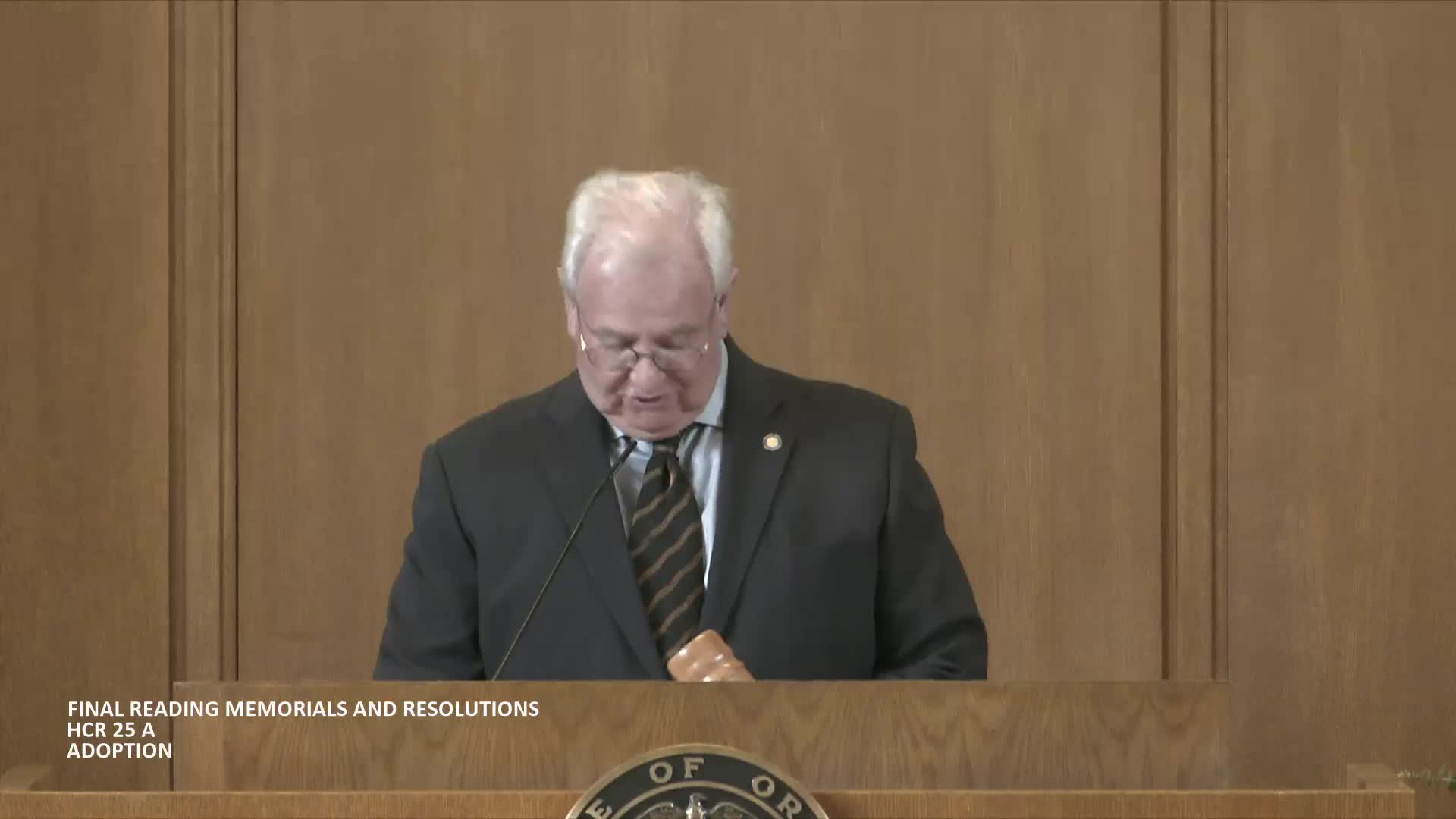Article not found
This article is no longer available. But don't worry—we've gathered other articles that discuss the same topic.
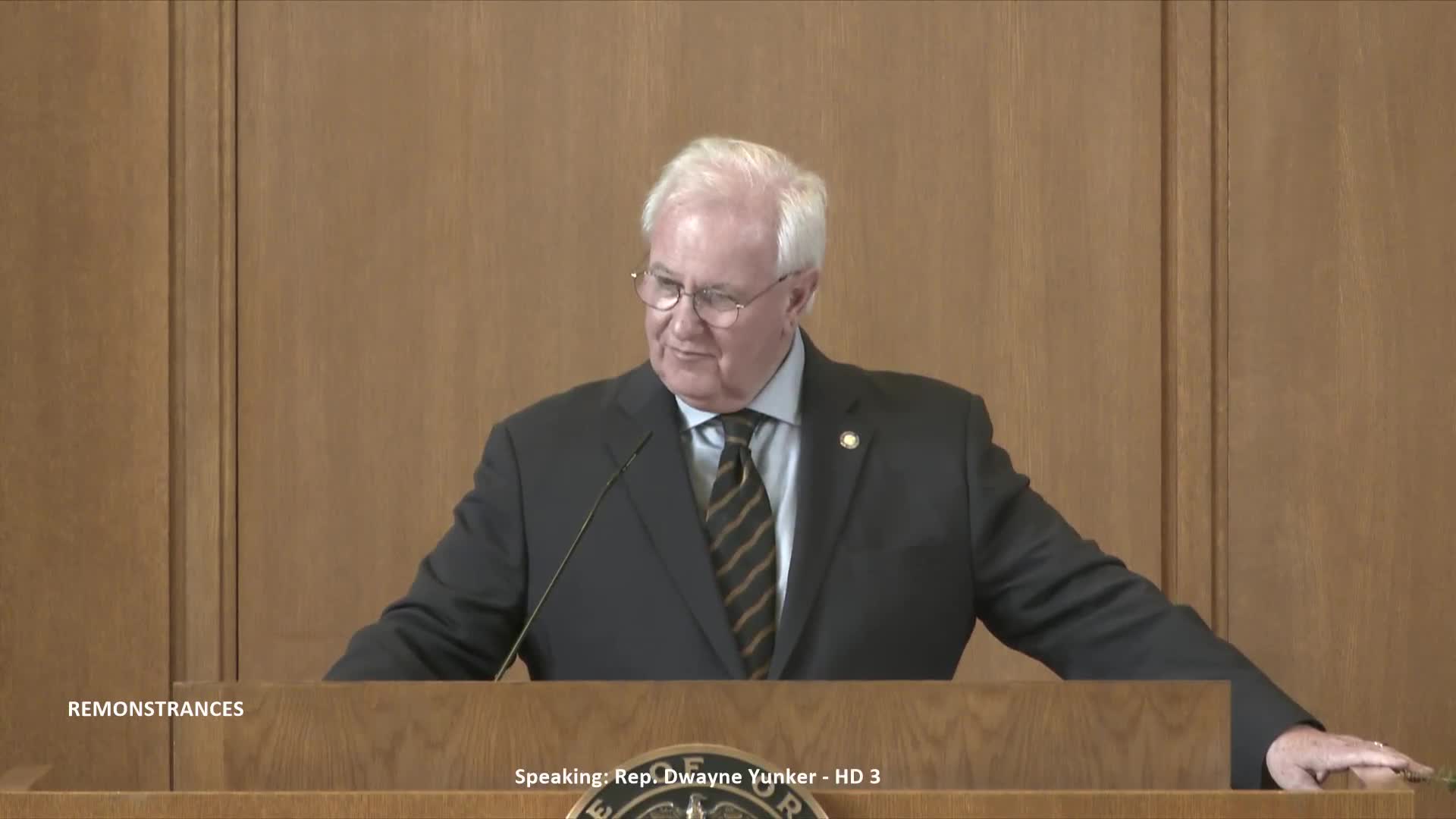
House floor remonstrances highlight deportation case and sharply divergent views on immigration and the rule of law
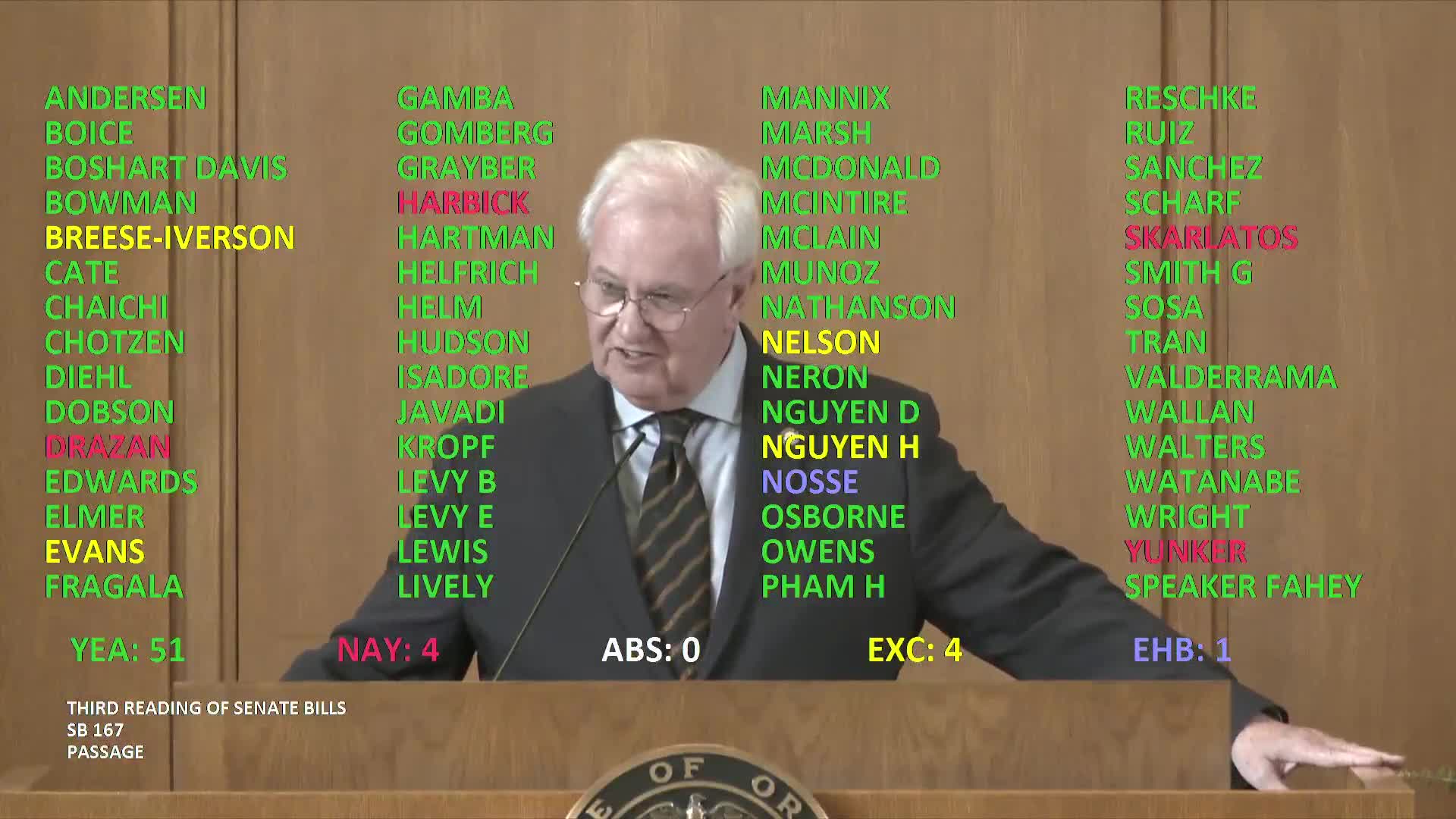
House passes probate bill correcting earlier drafting errors and clarifying harmless‑error rule
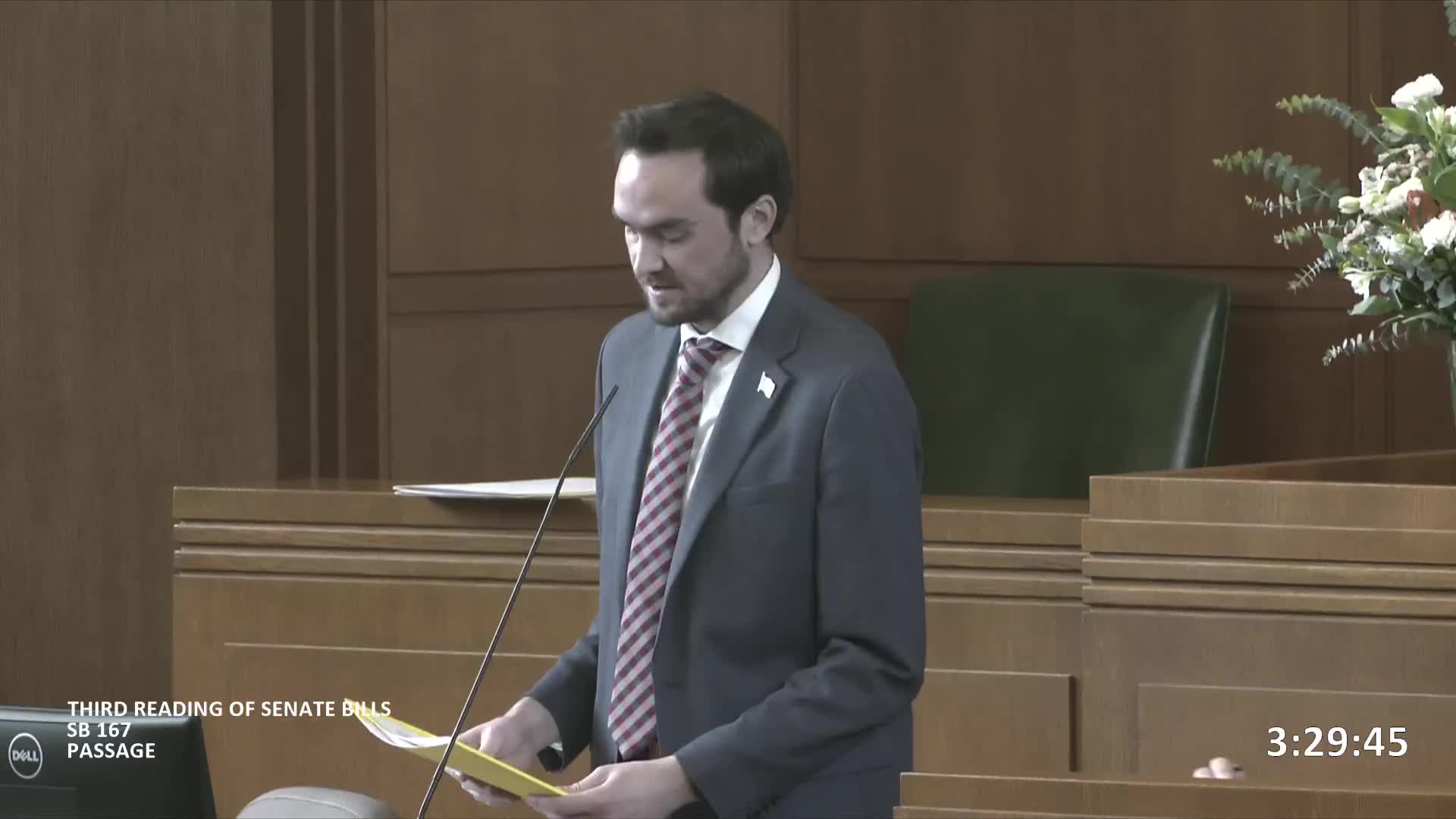
House approves update to Uniform Commercial Code to address virtual currencies
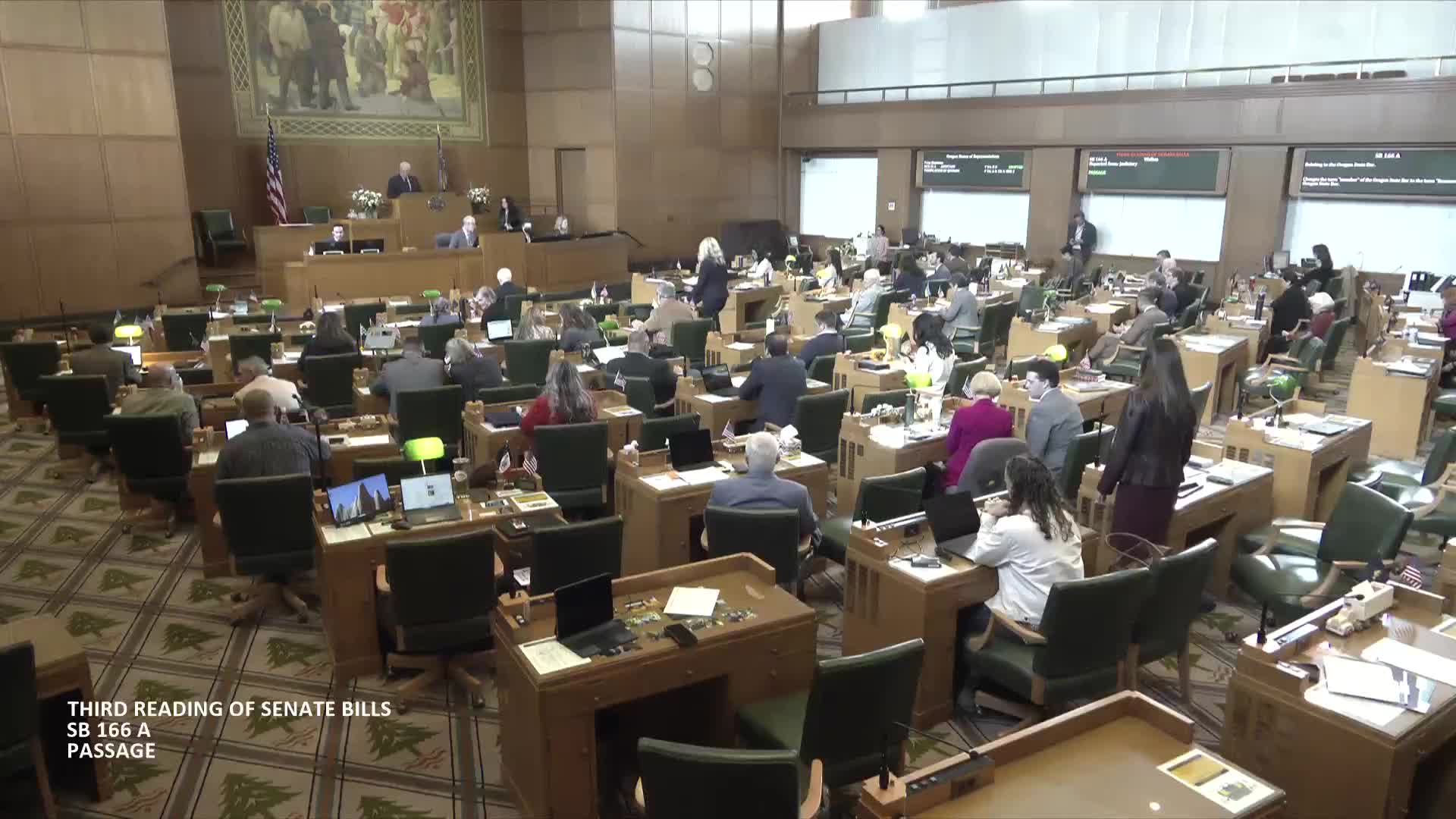
House passes bill renaming 'members' to 'licensees' in Oregon State Bar law, lowers quorum for board
